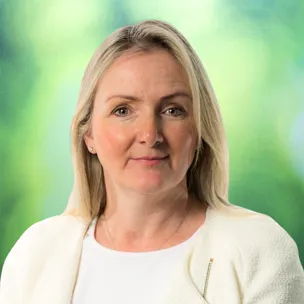Applying to the Family Court for a Child Arrangement Order
A Child Arrangement Order is a type of court order that you may need in order to arrange access and contact with the child in question.
It’s important to note that only people who have Parental Responsibility for a child can automatically apply for a Child Arrangement Order (which was formerly known as a Contact Order).
All mothers and most fathers have legal rights and responsibilities as a parent – this is what is known as ‘parental responsibility’.
If you have parental responsibility, your most important roles are to:
- provide a home for the child
- protect and maintain the child
Additionally, if you have parental responsibility, you’re also responsible for:
- disciplining the child
- choosing and providing for the child’s education
- agreeing to the child’s medical treatment
- naming the child and agreeing to any change of name
- looking after the child’s property
Regardless of parental responsibility, all parents have to ensure that their child is supported financially, even if they do not have any parental responsibility for their child.
If you have parental responsibility for a child but you do not live with them, it does not mean you have a right to spend time with the child or the children. However, the parents with parental responsibility must include you when making important decisions about their lives.
You do not always need to get the consent of the other individuals with parental responsibility for routine decisions, even if they also have parental responsibility. However, if it’s a major decision (for example, one of you wants to move abroad with the children) everyone with parental responsibility must agree to this in writing.
Typically, a child’s mother automatically has parental responsibility for her child from birth. A child’s father usually has parental responsibility if he’s either married to the child’s mother or listed on the birth certificate (after a certain date, depending on which part of the UK the child was born in). You can apply for parental responsibility if you do not automatically have it.
Before applying to the Family Court, you should exhaust all other options, meaning you should only consider this next step if all attempts at Mediation have failed.
Ordinarily, a person can apply to the Court to get parental responsibility for a child if they are connected to the child. For example, this may include the child’s father, their step-parent or a second female parent. It’s important to note that more than 2 people can actually have parental responsibility for the same child at the same time.
If you’re choosing to go down this route, you’ll need to know that the Court will consider:
- Your connection with the child
- The nature of your application for contact with the child
- Whether your contact will have a harmful effect on the child’s wellbeing in any way
The parents might still object to this, meaning that you will have to attend a full hearing where both parties will have to put forward strong evidence to support their cases.
It’s important that you have expert legal advice in this area especially as it can easily become complicated and confusing. By speaking to one of our Child Law Solicitors you can be advised on how to gather evidence and build a strong case.
You’ll need a strong case too. The Court will expect you to persuade them that you have a meaningful and ongoing relationship with your grandchildren. They’ll need to be convinced that your relationship will significantly benefit them.
With contact being such a sensitive issue, the Court will always put the child first and the Court will consider:
- The child’s circumstances
- Whether the making of an order is better for the child than making no Order at all
- Whether your continuing contact with the child will have a negative impact on the rest of the family relationships
What Happens Next?
The Child Arrangements Order will decide:
- Where the child lives
- Who a child spends time with and when
- What types of communication should take place between the child and someone named in the Order. For example, this could include face to face contact, telephone calls, emails, social media and text messages.
Our Family and Child Law Solicitors specialise in representing grandparents involved in contact with grandchildren disputes particularly following the parent’s separation. Members of our team are accredited by the Law Society for both Family Law and Child Law matters.
We understand how important it is to keep in contact and spend time with your grandchildren, and we’ll be very happy to help you achieve this.
We offer a variety of options for appointments including telephone and video calls - whatever suits you best. We’re here to support you and make the process as easy as possible for you. You will be fully supported throughout the process in order to take the pressure off you, so that you can take care of yourself.
To contact one of our expert Family Law and Child Law Solicitors, please call our friendly and helpful team today on 0808 239 3465 who will be more than happy to help. Alternatively, you can request a call back.
We appreciate that issues surrounding contact with a child can be difficult and stressful, with emotions often running high. As such, if you find that you have been affected by any of the issues raised in this article, please do not hesitate to seek support which can be found through several organisations, some of which are listed below.
- Samaritans – can be contacted by calling their free helpline on 116 123 or by email at [email protected]. Alternatively, a text service and online chat function is available, further details of which can be found on their website at https://www.samaritans.org/how-we-can-help/contact-samaritan/
- SANE Line – can be contacted from 4pm until 10pm on 0300 304 7000 or you can request a call back by leaving a voicemail message on 07984 967 708. Further information about their services can be found at https://www.sane.org.uk/how-we-help/emotional-support/saneline-services
- NHS England Mental Health Helpline – access to this service and further information can be found at https://111.nhs.uk/triage/check-your-mental-health-symptoms









